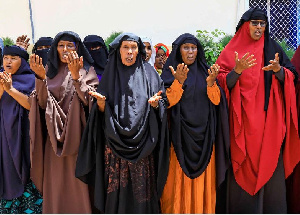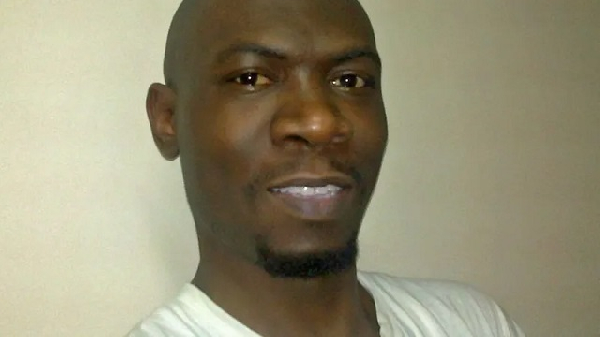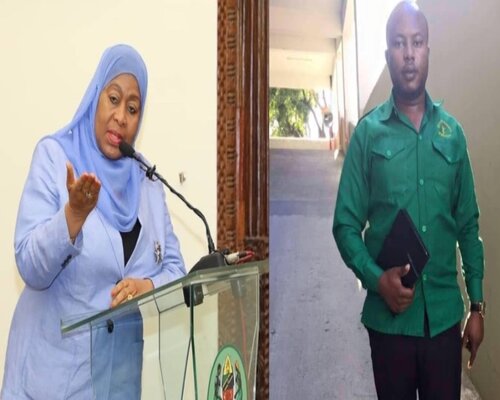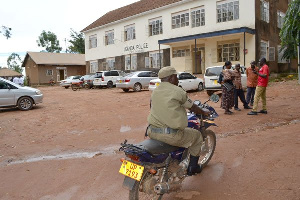Somalia election certain, now the focus is women seats, security

The political agreement signed in Somalia this past heralds not just a new democratic dawn but also one of equity and inclusivity by raising the quota of women in the formal political space to at least a third of the bicameral federal legislature.
With a provision for 30 percentage quota, it means Somalia must get at least 115 women into parliament, something it has failed to do in the past, despite having the quota set from 2012. In 2016, 80 women were selected for parliament, making 24 percent of the 329 seats in the combined houses.
Somalia, traditionally a conservative Muslim society usually elects its MPs indirectly by having clan elders nominate delegates who in turn vote for MPs. Under the altered arrangement, clan elders, predominantly male, will have to nominate delegates under supervision from electoral management bodies in the federal states and federal government.
Officials told The EastAfrican they hoped this will safeguard corrupt dealings in nomination, and elections.
The agreement endorsed the holding of indirect elections in 60 days, after a marathon set of talks led by Prime Minister Hussein Roble under the National Consultative Forum.
Federal presidents — Jubbaland’s Ahmed Madobe, Puntland’s Said Abdullahi Deni, Hirshabelle’s Ali Hussein Gudlawe, South West’s Mohamed Laftagareen and Galmudug’s Ahmed Karie — were on hand to sign the agreement which was also endorsed by the mayor of Mogadishu and governor of Benadir region Omar Filish.
A communique issued later said that “elections should be held in Somalia within 60 days, effective the signing of the document, Thursday, May 27.’’
The signing of the agreement comes after weeks of tension that had seen Mogadishu on the brink in the past month. But the hard work begins now, with the next hurdle being planning and holding of the election, which will also mean guarding the vote from theft, and providing an environment where more women can vie for elected positions.
Mohamed Abdirazak, Somalia’s Foreign and International Co-operation Minister told The EastAfrican the structure of the indirect vote will make this possible.
“Election security is a key pillar of the agreement. The agreement signed yesterday confirms an indirect election process that takes place in a limited number of sites across the country,” he told The EastAfrican on Friday, indicating that a joint team of local security forces and African Union Mission in Somalia (Amisom) forces will guard the election venues, adding,
“The agreement stipulates that the 30 percent women’s quota will be protected. The Federal government is committed to fair, transparent, accountable and inclusive elections.”
Reached after months of failed attempts, the agreement is an implementation of the September 17, 2020 deal which provided for indirect elections. Each federal state will field two venues where delegates will elect MPs.
Security was one of the contested issues, stalling previous talks.
Following the agreement signing on Thursday, PM Roble said he will directly supervise the elections and lead reconciliation in the troubled Gedo region of Jubbaland where Somali National Army troops routinely clash with Jubbaland forces. The PM, under the arrangement, will chair a committee on security which will have nine members and will include representatives from federal states, Amisom and security chiefs in Somalia.
In April, Farmaajo was forced to back down from extending his tenure which had officially ended on February 8, and asked parliament to cancel the extension, and allow PM Roble to lead talks. On Thursday, he said he was sure Somalia will hold elections as agreed.
“It is time to head to a credible electoral process and to avoid any actions that could be an obstacle to our stability and national elections. I am confident that the agreement reached today will enable us to hold a general election,” he told an audience at the signing ceremony inside the Aden Abdulle International Airport in Mogadishu.
The agreement has been welcomed by Somalia’s international partners. UN Secretary-General Antonio Guterres called for its immediate execution, urging all stakeholders to swiftly implement it as a critical step towards the holding of a consensual and transparent electoral process without further delays.
“The Secretary-General reiterates the importance of dialogue and consensus to resolve any issues that may arise during implementation, and calls for the swift establishment of credible election management bodies at the federal and state levels to conduct the process,” Guterres spokesman Stéphane Dujarric said in a statement.
A joint statement supporting the deal was signed by the UN, the Amisom, the EU, the League of Arab States, the Organisation of Islamic Co-operation among more than two dozen countries.






